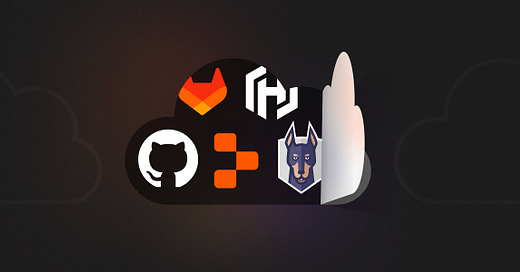Research Rundown
Last week we talked about the buzz surrounding generative AI, and as we spent more time in the category we came across a number of resources that proved helpful in getting up to speed on the space. Every industry experiences a "why now," and AI is a combination of rapid acceleration in the progress of large language models, and intense enterprise demand for NLP expertise. Even the tech giants are placing their bets, with Google in talks to invest $200M in Cohere (who we wrote a memo about this week), and Microsoft in talks to lead a funding round for OpenAI, potentially at a $20B valuation.
Other categories that have experienced similar "why now" moments in the last year or so are payroll, and collaboration tools. Last week, we shared the news that Rippling had launched their payroll product globally (the first payroll provider to do so). Other players, like Gusto, represent the first iteration of new-age payroll tools. With more workers than ever working remotely, the "why now" in payroll is pushing these players towards global coverage.
Finally, collaboration is in a similar place. The obvious answer during COVID was that no one could collaborate in person, so they were completely dependent on digital collaboration tools. Miro was one of the companies that saw a huge explosion of usage during COVID. The question going forward will be whether that "why now" remains relevant, or not?
That "why now" question is often shaped by a similar question: "what will the future of this space look like?" We've got a lot of new company stories to tell across memos, and deep dives, that revolve around that question. The future of DevOps, NLP, online shopping, and frontend development. Let's dig in!
The Evolution of DevOps: Unlocking The Full Value of The Cloud
Thanks to cloud computing and open source, the pace of software development has been reduced from years to months, if not weeks. As every company becomes a software company, DevOps has quickly become the most effective way for companies to develop and deploy software at scale. But while 90% of businesses indicate DevOps is a top strategic priority, only 12% of enterprises have mature DevOps capabilities.
The developer capacity for every company is always constrained, and the future of software development will revolve around the trends that will impact that developer capacity. Companies focused on driving efficiency in the software development lifecycle will look for opportunities to consolidate their developer tools, move security earlier in the lifecycle, and leverage automation to free up their developers. The future of DevOps is the future of software. Read the full report here.
The best companies have products that represent a deep understanding of their customer's needs. Whether it's a customer's inability to bear the cost or talent capacity to build robust NLP models, a new trend for consumers to shop via livestream, or the ability for developers to easily spin up frontend applications; that product understanding shines through in the customer love those companies experience. That customer understanding was a common theme in the companies we covered this week.
Vercel: Vercel provides a frontend software development platform. Users can develop, preview, and ship dynamic and static websites more easily, and in a more scalable way. Read our full memo here.
Cohere: Cohere provides access to natural language processing models via API. Developers can then use those models to build artificial intelligence applications for businesses that can understand human speech and text. Read our full memo here.
WhatNot: WhatNot is a livestream platform and marketplace that enables collectors and enthusiasts to connect, buy, and sell verified products across 50+ collectible types. Read our full memo here.
The path from point solution to platform is often the only way a company can become consistently relevant for customers. Persona started its journey as an identity verification platform. This week, they announced a new suite of products around identity including a risk assessment engine, an identity workflow tool, and a graph database aimed at link analysis and fraud detection. The company is also providing a marketplace, and an application for developers to help connect their business applicaitons to Persona’s identity tools. To learn more about Persona's story, check out our memo.
Every 10 years there is a changing of the guard in JavaScript. Swyx, a developer advocate at Temporal, laid out this thoughts in this write-up and in this Twitter thread around why we may have just started a period of accelerated change that could lead to the Third Age of JavaScript.
Vercel had their annual conference this week, where they announced a new key feature named Turbopack, the successor to Webpack. Turbopack is built on a new incremental architecture for the fastest possible development experience. On large applications, it shows updates 10x faster than Vite and 700x faster than Webpack. Swyx also shared some key highlights on Twitter.
Databricks acquired revenue intelligence startup Datajoy. The startup emerged out of stealth last year. The company offers AI-powered revenue analytics for SaaS companies. It provides a data platform that brings together data from marketing, sales, product and finance to provide data scientists with a cleaned and curated data warehouse with all of the company's SaaS revenue data. The acquisition likely suggests that Databricks wants to provide more verticalized GTM solutions. If you missed our deep dive on Databricks vs Snowflake, check it out here.
Ramp announced a key new feature. Ramp is now able to provide international bill pay and employee reimbursement. Companies can reimburse their employees, no matter where they’re located. Ramp's new product is allowing vendors to be paid in 175+ countries and 80+ currencies. The company also announced a feature that allows businesses to set up employees with preset amounts and limits they can use. Read more about the release here, and check out our memo on Ramp here
ScaleAI announced a new suite of products this week at its Transform X conference. They include Scale Applied AI, Scale NLP, and Scale Rapid. All the product announcement show how the company is deepening its expertise and product suite within AI/ML, and expanding beyond its core data labelling products. This blog has more details and if you missed our memo on Scale, read it here.
Contrary Research Fellowship
At Contrary Research our vision is to cover hundreds of companies. We can't do it alone, nor would we want to. We focus on bringing together a variety of different perspectives.
That's why we're opening applications for our Research Fellowship. In the past we've worked with software engineers, product managers, consultants, and more. If you're interested in researching and writing about tech companies, apply here!











